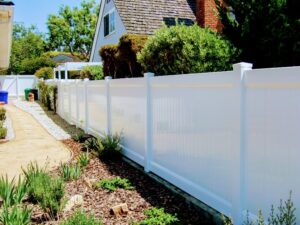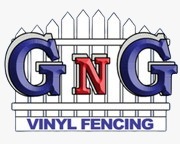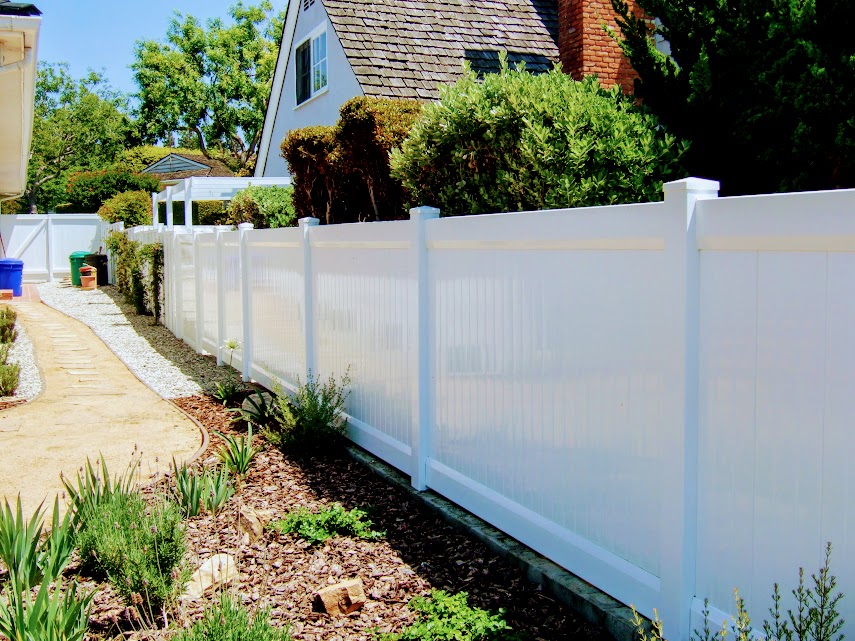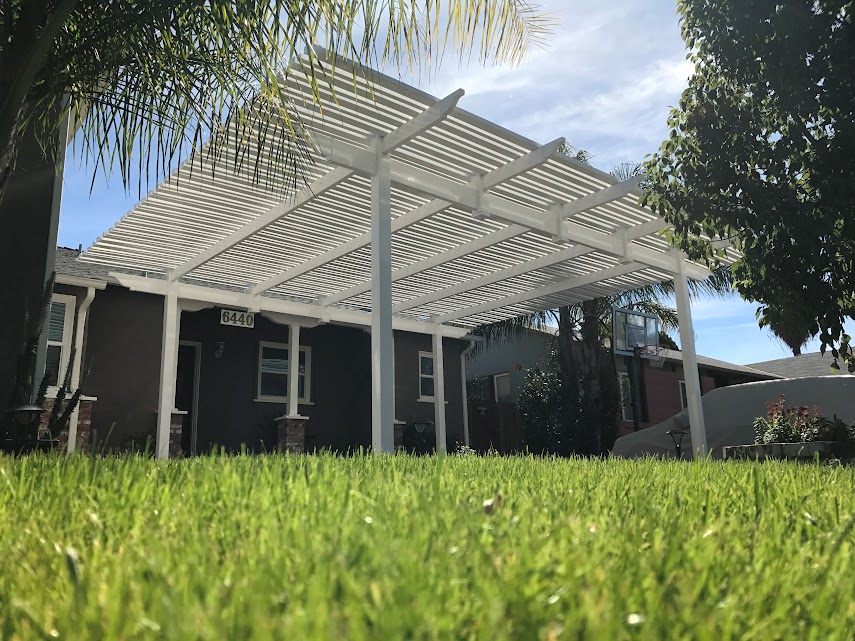The great outdoors is calling! Your backyard should be a sanctuary where you can unwind, but let’s face it, sometimes neighbors can be a little too close for comfort. That’s where a fence extension comes into play—it elevates the height of your existing fence and amps up the privacy factor, making your outdoor space the peaceful retreat you’ve always wanted.
Why Extend Your Existing Fence?
Extending your existing fence is a cost-effective option if you’re looking to save money. You won’t need to invest in a completely new fence, which can be a relief for your wallet.
Speed is another advantage. You already have a fence in place, so adding to it is a quicker process. You can bypass some of the steps that a new installation would require.
Your home’s existing aesthetic won’t be disrupted, either. The fence you have was chosen for a reason, and extending it maintains that visual harmony.
Privacy is a big deal for most homeowners. A taller fence offers more seclusion, making your outdoor space a sanctuary. Materials like PVC and galvanized steel are great for adding height.
You’re not limited in your choice of materials. Adding fence toppers or extra panels can also bring in a decorative element.

The Basics of Fence Height
Fence height is crucial in achieving the level of privacy you desire in your outdoor space. A higher fence naturally offers more seclusion, shielding you from prying eyes and intrusive glances from neighbors or passersby.
Different materials can be used to extend the height of your fence. Whether you have a chain link fence, a wooden fence, or a vinyl fence, there are ways to add those extra feet. Galvanized steel and PVC are popular choices for adding durability along with height.
But it’s not just about privacy. The height of your fence can also impact other factors like wind resistance and noise reduction. A taller fence can act as a buffer against strong winds and muffle street noises, making your outdoor space more peaceful.
The Purpose of Fence Posts in Extension
Fence posts are the backbone of any fence, especially when you’re looking to extend an existing structure. These sturdy pillars hold your fence upright and determine how high you can go with your extension. Whether you’re working with wood, chain link, or vinyl, the posts are crucial.
For chain link fences, galvanized steel posts are commonly used. They’re heavy-duty and can withstand the elements, making them a reliable extension choice. You’ll need to add post extensions to increase the height, and these usually come in the same material as your existing posts for a seamless look.
Wood fences often use wooden fence posts, which can be extended using fence toppers or additional wood panels. The key here is to ensure the posts are strong enough to support the added weight. If you’re going for a high-quality, long-lasting extension, you might consider using treated wood for the posts.
Vinyl fences typically use PVC posts, which are relatively easy to extend. You can find PVC post extenders that slide right onto your existing posts. These are powder-coated for extra durability and are a straightforward way to add height to your fence.
Iron fences usually require specialized post extenders made of the same high-quality iron. Once completed, these are bolted or welded onto the existing posts, making the extension process more involved but incredibly sturdy.

Fence Toppers for Extra Flair
Fence toppers are like the cherry on top of a sundae for your existing fence. They not only add height but also bring a dash of style to your outdoor space.
Fence toppers aren’t just about aesthetics; they also serve practical purposes. For instance, if you have a dog fence, adding a topper can make it more challenging for your furry friend to escape. Similarly, cat fences can be extended with specialized toppers to deter climbing.
When choosing a fence topper, consider the material and how it complements your existing fence. Wood goes well with wood, iron with iron, and so on. Also, think about the installation process. Some toppers can be easily attached with screws, while others might require more heavy-duty methods like welding.
Wood vs. Vinyl Privacy Fences
When it comes to fence extensions, the material you choose plays a significant role in the look and functionality of your outdoor space. Two popular choices are wood and vinyl fences. Each has its own advantages and drawbacks, and understanding these can help you make an informed decision.
Wood fences have been around for ages and offer a classic, natural look. They’re highly customizable, allowing for various designs, from lattice panels to solid fences privacy Wood is also easier to work with for DIY projects, offering a bit of forgiveness for those less experienced with fence installation. However, wood fences require regular maintenance, like staining or painting, to keep them looking fresh and to protect against the elements. Over time, wood can warp, rot, or become infested with pests.
In contrast, vinyl fences are a more modern option and benefit from low maintenance. A simple wash with soap and water is usually enough to keep a vinyl fence looking new. They also resist harsh weather and pests, making them a long-lasting option. Vinyl fences are available in various styles, like picket fences, and can even mimic the look of wood. However, they can be more challenging for DIY installation and are generally more expensive upfront.
When considering fence height, both wood and vinyl offer options for extensions. Wood fence toppers can be added to existing fences relatively easily, and you can paint or stain them to match. Vinyl fence extensions may require a specialized kit but offer a consistent look and color that won’t fade over time.
Wood fences may be the better option for homeowners concerned with sustainability, especially if sourced from sustainably managed forests. Vinyl fences, while durable, are not biodegradable and may pose challenges for disposal down the line.
Heavy Duty Options for Maximum Privacy
If you’re looking for a fence that offers privacy and durability, you might want to consider heavy-duty options like galvanized steel and high-quality PVC. These materials are the titans of the fencing world, offering privacy and a level of sturdiness that stands the test of time.
Galvanized steel is a robust material that undergoes a special process to resist rust and corrosion. This makes it an ideal choice for homeowners living in areas with harsh weather conditions. The strength of galvanized steel also makes it a top pick for security. Intruders would have difficulty cutting through or climbing this type of fence. Plus, steel fences can be coated with a layer of powder to add protection and style.
High-quality PVC, or polyvinyl chloride, is another excellent choice for a robust and low-maintenance option. Unlike wood, PVC doesn’t rot or get infested with pests. It’s also resistant to UV rays, so it won’t fade over time. Many homeowners appreciate the clean, modern look of PVC fences, which can be customized in various styles, from privacy screens to lattice panels.
Landscaping Around Your Extended Fence
So you’ve extended your fence, and it’s looking great. But what about the surrounding space? Landscaping can make all the difference in turning your outdoor space into a sanctuary. For added aesthetics, let’s dive into some tips on the landscape around your newly extended fence.
Planting shrubs or small trees near the fence line can create a natural, organic look. Choose plants that complement the fence type, whether it’s a wooden fence, vinyl fence, or even a chain-link fence. For instance, evergreen shrubs can add a touch of greenery year-round and offer additional privacy.
Flower beds are another excellent option. They not only add color but also help define the space. If you’ve installed a high-quality PVC or vinyl fence, consider flowers contrasting the fence color to make it pop. You could match the flower colors with your home’s exterior for a more cohesive look.
Consider building a trellis against the fence if you’re a DIY enthusiast. Trellises are a great way to display climbing plants like roses or ivy, and they can also add height to an existing fence. Most home improvement stores offer trellis panels to attach to your fence posts easily.





